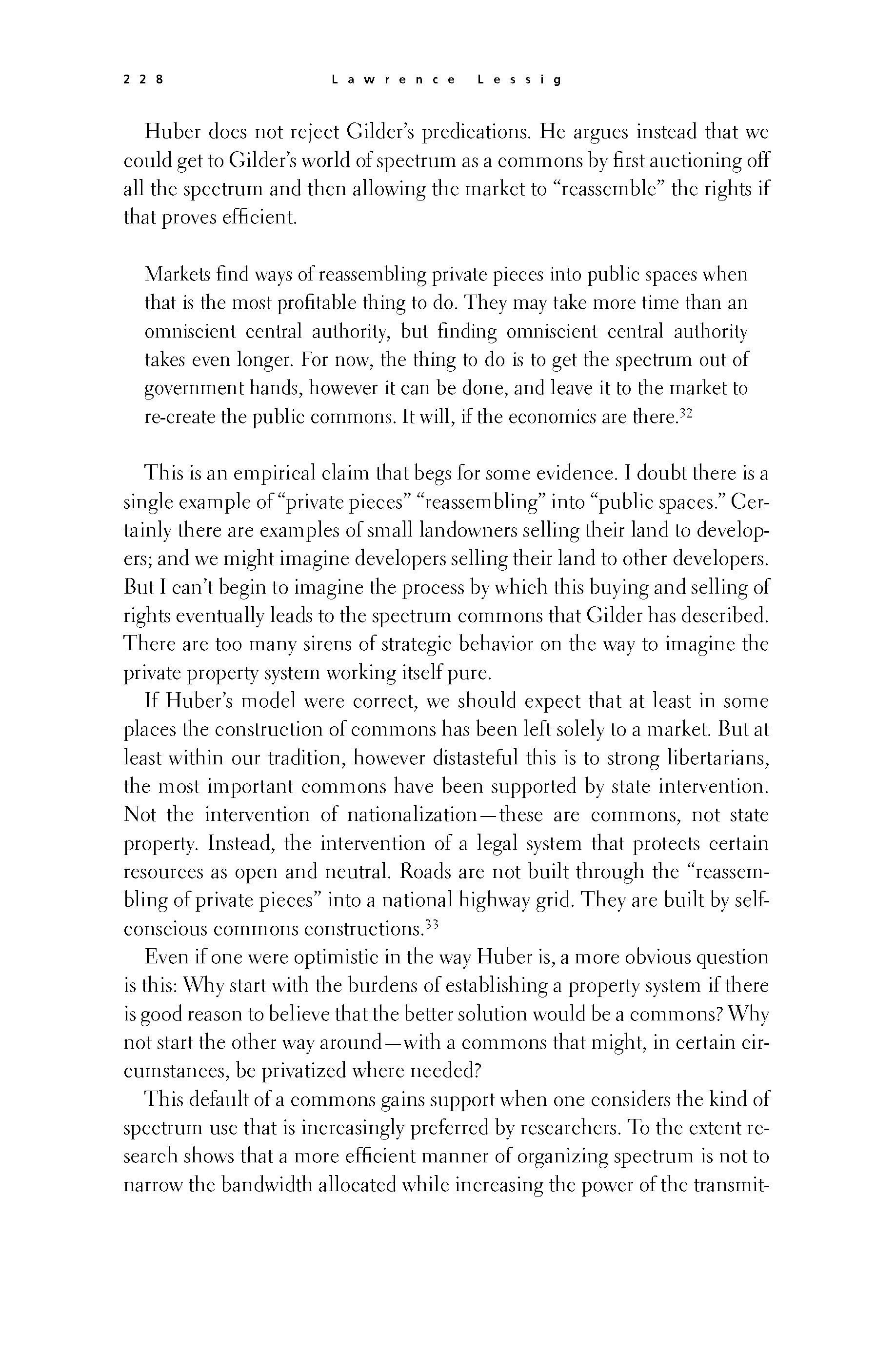 p227 _
-chap- _
toc-1 _
p228w _
toc-2 _
+chap+ _
p229
p227 _
-chap- _
toc-1 _
p228w _
toc-2 _
+chap+ _
p229
Huber does not reject Gilder's predications. He argues instead that we
could get to Gilder's world of spectrum as a commons by first auctioning off
all the spectrum and then allowing the market to "reassemble" the rights if
that proves efficient.
____ Markets find ways of reassembling private pieces into public spaces when
____ that is the most profitable thing to do. They may take more time than an
____ omniscient central authority, but finding omniscient central authority
____ takes even longer. For now, the thing to do is to get the spectrum out of
____ government hands, however it can be done, and leave it to the market to
____ re-create the public commons. It will, if the economics are there.[12-32]
This is an empirical claim that begs for some evidence. I doubt there is a
single example of "private pieces" "reassembling" into "public spaces." Cer-
tainly there are examples of small landowners selling their land to develop-
ers; and we might imagine developers selling their land to other developers.
But I can't begin to imagine the process by which this buying and selling of
rights eventually leads to the spectrum commons that Gilder has described.
There are too many sirens of strategic behavior on the way to imagine the
private property system working itself pure.
If Huber's model were correct, we should expect that at least in some
places the construction of commons has been left solely to a market. But at
least within our tradition, however distasteful this is to strong libertarians,
the most important commons have been supported by state intervention.
Not the intervention of nationalization -- these are commons, not state
property. Instead, the intervention of a legal system that protects certain
resources as open and neutral. Roads are not built through the "reassem-
bling of private pieces" into a national highway grid. They are built by self-
conscious commons constructions.[12-33]
Even if one were optimistic in the way Huber is, a more obvious question
is this: Why start with the burdens of establishing a property system if there
is good reason to believe that the better solution would be a commons? Why
not start the other way around -- with a commons that might, in certain cir-
cumstances, be privatized where needed?
This default of a commons gains support when one considers the kind of
spectrum use that is increasingly preferred by researchers. To the extent re-
search shows that a more efficient manner of organizing spectrum is not to
narrow the bandwidth allocated while increasing the power of the transmit-
[[228]]
p227 _
-chap- _
toc-1 _
p228w _
toc-2 _
+chap+ _
p229